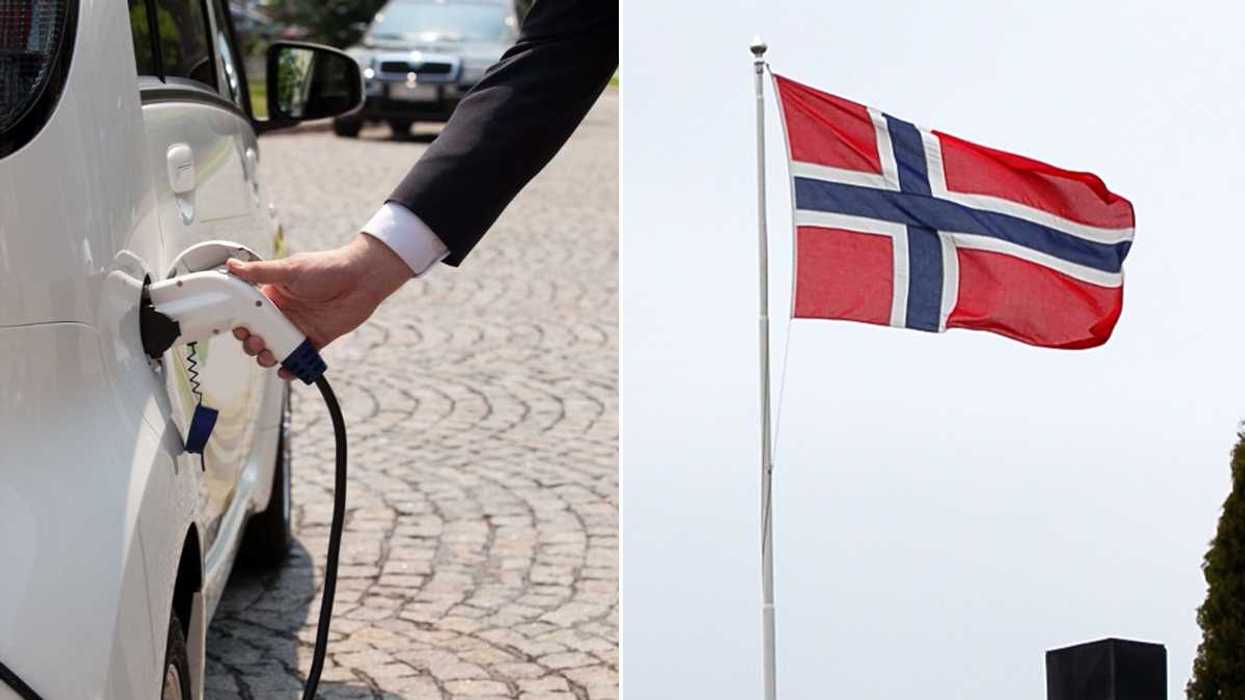Treasury Secretary Steven Mnuchin said Tuesday that he and President Donald Trump supported sending $1,000 checks straight to the American people as tens of millions face furloughs, layoffs, and financial uncertainty as the coronavirus outbreak spreads—a major shift of the Overton Window regarding direct cash assistance for Americans amid the pandemic.
"We are looking at sending checks to Americans immediately," Mnuchin told the press. "Americans need to get cash now and the president wants to get cash now, and I mean now—in the next two weeks."
Mnuchin reportedly said the administration "likes the idea of $1,000" for the checks, but declined to give an exact number in a press briefing or to say if the proposal would be free of restrictions that could leave out people who receive other government benefits. He also suggested the program could be means-tested, telling reporters, "We don't need to send people who make a million dollars a year checks."
Still, the notion of direct cash assistance from the Trump administration would have been "inconceivable" just days ago, Washington Post economics reporter Jeffrey Stein tweeted.
"If the cash is genuinely unrestricted, it would be a historic move. While Americans received checks as part of the response to recessions in 2001 and 2008, those were sent out as rebates or refunds to taxpayers," wrote Dylan Matthews at Vox.com. "Never before have all Americans, regardless of income, and including the poorest citizens who do not earn enough money to have positive income tax burdens, gotten checks."
Mnuchin's statement followed intense criticism of the administration's previous economic stimulus proposal to offer a payroll tax cut to companies—a plan which would not help Americans in the immediate term and would carry no benefit for people who lose their jobs as a result of the public health crisis.The suggestion that the federal government could send checks to tens of millions of Americans came a day after Republican Sens. Mitt Romney (R-Utah) and Tom Cotton (R-Ark.) criticized an economic relief package from House Democrats for failing to deliver fast enough assistance to American workers. The bill left most workers out of its plan for paid sick leave, and the legislation was scaled back even further late Monday, limiting the benefit for the next ten weeks to people who are out of work because they need to care for children.
The scaling back of the House bill and the administration's potential offer of assistance, as well as the proposals put forward by Republican senators, has effectively placed Democrats to the right of the GOP regarding coronavirus aid, HuffPost reporter Zach Carter tweeted.
"A handful of Republicans are outflanking Democrats on coronavirus aid," he wrote, sharing Sen. Josh Hawley's (R-Mo.) plan to send checks for several thousand dollars to families. "If Republicans move in this direction and Democrats keep insisting on narrowly targeted means-tested plans with a zillion carve outs for particular businesses, it will be a catastrophe for the Democratic Party."
Following the push on Monday from Romney, Cotton and Hawley, some Senate Democrats also began pushing for direct cash assistance. Sens. Cory Booker (D-N.J.), Michael Bennet (D-Colo.), and Sherrod Brown (D-Ohio) on Tuesday proposed immediate payments of $2,000 for every American adult and child followed by additional payments later this year.
"The 'send people money' bids are ramping up in the Senate," New York Times reporter Jim Tankersley tweeted.
Last week, before the House passed its relief bill, Reps. Ro Khanna (D-Calif.) and Tim Ryan (D-Ohio) proposed sending checks of up to $6,000 to every American earning less than $65,000. Progressive Rep. Ilhan Omar (D-Minn.) also announced Tuesday on Twitter that she was planning to introduce legislation to offer $1,000 to every adult and $500 to every child in the country, with "no exceptions," as well as direct stimulus to any small business that doesn't lay off its workers during the crisis.
Other progressives in Congress applauded the Trump administration for considering direct cash payments—and pushed the president to move forward with other proposals for assistance to Americans.
Reps. Alexandria Ocasio-Cortez (D-N.Y.) and Ayanna Pressley (D-Mass.) both called on Mnuchin and Trump to suspend student loan payments or cancel student debt.
"Student loan cancellation has to be part of the next emergency funding package," tweeted Pressley.
This article originally appeared on Creative Commons. You can read it here.
















 A parking lot for charging electric vehicles.Photo credit
A parking lot for charging electric vehicles.Photo credit  Oil production.Photo credit
Oil production.Photo credit  Sun shines over the Earth.Photo credit
Sun shines over the Earth.Photo credit 
 Counterintuitively, social media can make you feel more bored and lonely.
Counterintuitively, social media can make you feel more bored and lonely. Talking about what you’ve read can add a social dimension to what can be a solitary activity.
Talking about what you’ve read can add a social dimension to what can be a solitary activity. 
 A flight attendant closes the overhead binCanva
A flight attendant closes the overhead binCanva Gif of Larry David trying to put his luggage in overhead compartment via
Gif of Larry David trying to put his luggage in overhead compartment via 
 Dog owner pets their dogCanva
Dog owner pets their dogCanva Gif of a sad looking pug via
Gif of a sad looking pug via 

 Volunteer work.Photo credit
Volunteer work.Photo credit  Putting the puzzle together.Photo credit
Putting the puzzle together.Photo credit  Woman and her equations.Photo credit
Woman and her equations.Photo credit  A colorful mind.Photo credit
A colorful mind.Photo credit  A happy business team.Photo credit
A happy business team.Photo credit 

 A happy entrepreneur at workCanva
A happy entrepreneur at workCanva